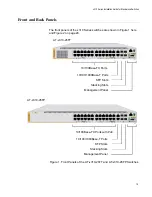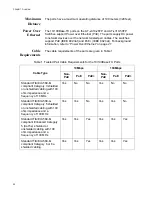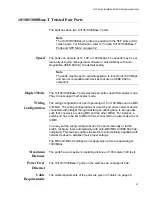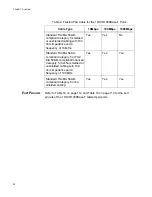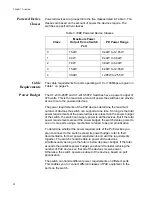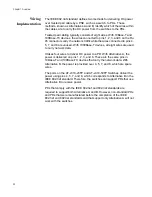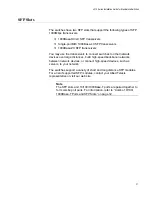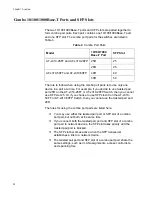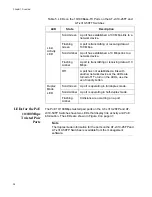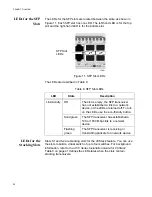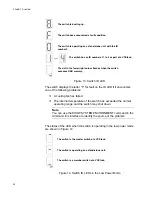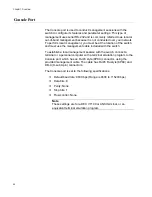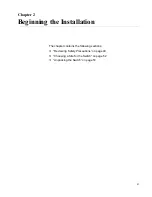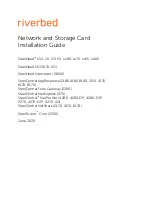
x310 Series Installation Guide for Stand-alone Switches
33
Stacking Slots
The S1 and S2 slots on the front panel of the switch are used with special
stacking transceivers to create a VCStack of up to four switches. The
switches of a VCStack act as a single virtual unit. They synchronize their
actions so that switching operations, like spanning tree protocols, virtual
LANs, and static port trunks, span across all the units and ports. The two
main advantages of stacks are:
You can manage multiple units simultaneously, which can simplify
network management.
You have more flexibility with some of the features. For instance, a
static port trunk on a stand-alone switch has to consist of ports
from the same switch. In contrast, a static trunk on a stack may
consist of ports from different switches in the same stack.
The stacking transceiver is called the AT-StackXS/1.0 transceiver. It has
two SFP transceiver-style connectors and one meter of twinax cable.
Refer to Figure 7.
Figure 7. AT-StackXS/1.0 Stacking Transceiver
Note
This guide explains how to install the devices as stand-alone units.
For instructions on how to install the switches in a stack with Virtual
Chassis Stacking (VCStack), refer to the
x310 Series Installation
Guide for VCStack
.
Note
The stacking slots may only be used with the stacking transceivers.
They may not be used as regular networking ports.
Summary of Contents for AT-x310-26FP
Page 10: ...Tables 10 ...
Page 14: ...Preface 14 ...
Page 46: ...Chapter 1 Overview 46 ...
Page 56: ...Chapter 2 Beginning the Installation 56 ...
Page 92: ...Chapter 5 Cabling the Networking Ports 92 ...

